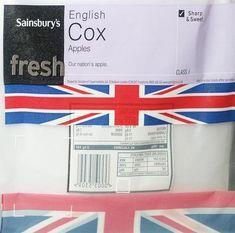
Long Life Smart Technology is set to take the fresh produce industry by storm. Packaging trials carried out over the last three years have proved that the technology, which uses a unique breathable film to create an atmosphere that extends not only shelf-life, but freshness, were hailed a success at an official launch last week.
Smart retail bags, films, pallet covers and crate liners are already widely used in the industry, but Long Life Solutions (LLS) sales director David Wilkinson said the company has waited for the right moment to shout about its groundbreaking products. Tests on a broad range of fruits and vegetables have shown that the technology eliminates dehydration and extends freshness. LLS is also promising huge costs savings throughout the supply chain.
As opposed to Modified Atmosphere Packaging (MAP), this is interactive packaging, said Wilkinson, who singled out three principal factors that stand the products out from the rest: “The film reacts to the produce’s own unique respiration rates as it moves through the cool chain,” he said. “This allows produce to increase CO2 levels and reduce oxygen levels. The produce slows its own metabolism and respiration via its own biofeedback mechanism, which creates its own sustainable environment. In layman’s terms, it goes to sleep.”
Packers and growers have been forced into a radical rethink, as it was previously believed that each product had its own specific requirements. A single, uniform film can be used for all of the products that have so far been trialled, and Wilkinson believes it probable that LLS products will be suited to every fresh produce line.
“This is tomorrow’s packaging, today,” he said. “The benefits for producers and packers are beyond eliminating dehydration and corresponding weight loss while making ice packing a thing of the past,” he said. “Our packaging can help balance crop flushes, reduce the impact of bad weather conditions and can extend the season.”
Most of the UK retailers have already used Smart technology in some way. Cape Five in South Africa, for instance, has packed Cox for Sainsbury’s in the bags and using LLS crate liners. The apples were held in cold storage for five months in Life Smart technology liners before being graded, packed and sealed in Duo bags [the retail bag’s brand-name] for shipment to the UK. “It arrived in the UK showing no deterioration in colour, there was no reduction of pressure and no dehydration,” said Wilkinson. “Growers therefore do not have to overpack.
“For the retailer, there is just-harvest freshness, and therefore longer shelf-life, better appearance, improved flavour and less wasteage, as well as the retention of nutrients. After purchase in the Duo Bag, the consumer gets the benefit of the product staying fresher for longer at home. The quality of the product getting to the end consumer is better and that can only be good news.”
Some of the examples coming out of trials are startling. As well as the five-month extension of apple freshness, grapes, for instance, retained freshness for 110 days longer than with standard packaging, strawberries 14 days, cucumbers 21 days, legumes 21-28 days, asparagus 28 days, whole head lettuce eight days, tomatoes 15 days, stone fruit 60 days, and broccoli 30 days.
“The long-term hope is to eliminate CA containers, which would take huge costs out of the supply chain,” said Wilkinson. The cost of the technology he said is “around 50 per cent higher than standard bags, but 25 per cent cheaper than competing MAP products.
“One of the only limiting factors is how far the supermarkets in the UK will let it go,” he added. “But there are tangible benefits in financial terms. Hidden costs down the line are also hidden profits. This technology can help the supply chain to find them.”



